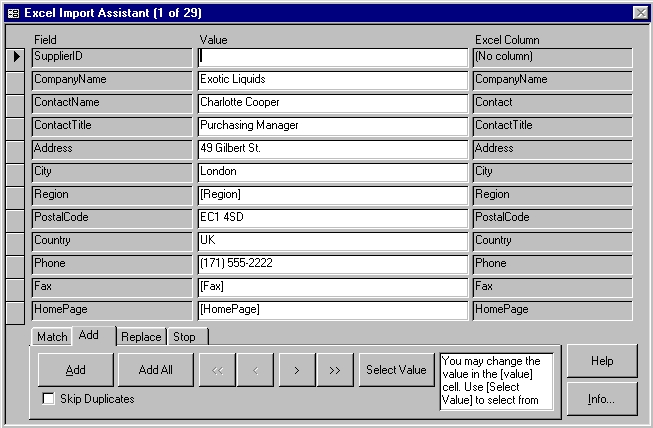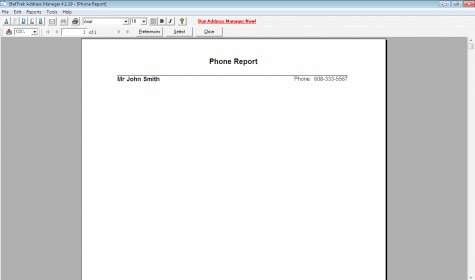

- #Stattrak address manager reviews software#
- #Stattrak address manager reviews code#
- #Stattrak address manager reviews plus#
We strongly encourage you to do so.ġPassword requires a master password if you’re on a device you’ve already used to access its service, but if you are using a new device or browser, you have to enter a long, complex secret code provided to you by 1Password. While that doesn’t keep us from recommending those products, it does leave it up to you-the user-to turn on multifactor authentication and to create a long, unique password to protect the vault, even if your password manager doesn’t require it.

But Bitwarden, LastPass, and Norton did not enable this by default.
#Stattrak address manager reviews plus#
Bitwarden, Keeper, and McAfee fell short of expectations, allowing us to set a master password as weak and easy to guess as “111111111111.”Īll the products we tested use multifactor authentication, a common security measure that requires a password plus an additional form of ID-a code on an authenticator app or sent via email or SMS-before granting access to your account from a new device or a new IP. We also looked at how much control a password manager exerts over the passwords created by users.
#Stattrak address manager reviews software#
(Note: The premium versions of these services routinely use the same software and privacy policies as their free siblings they simply offer extra features.) However, five of the services, 1Password, Bitwarden, Dashlane, McAfee, and Norton, don’t have that protection-in either the free or premium versions of their software. For instance, some of the password managers can determine if a device has been “rooted,” which may indicate that an attacker has gained administrative control of it, getting access to secret data and putting passwords at risk. They used strong encryption while transmitting data, and either automatically updated their software with security updates or made it easy for consumers to do it themselves.īut there are clear differences. Are the password managers resistant to known exploits or techniques hackers can use to take advantage of vulnerabilities? Do they use up-to-date methods to encrypt their data? Do they have strict controls for making sure your master password is robust?Īll the services did some things right. What’s the point of a password manager if it doesn’t keep your passwords safe? Because you’re putting all your eggs in one basket, that basket had better be secure.Ĭonsumer Reports tested password manager apps and websites, looking at a number of criteria and using a variety of tools. (It just introduced a new feature that lets you generate "masked" email addresses to access new apps and services without divulging your real address, much like the privacy-conscious Sign in with Apple feature.) A number of other password managers do come highly rated, though, including three free options. Priced to start at $4 per month, it’s the only password manager to earn top marks in all three areas of testing in our ratings.

The more options-automatic password generation, automated password-change process, or notifications when one of your passwords has been caught up in a data breach-the better the score.

We also factor in usability, examining the features each service offers and how compatible each is with platforms such as Android, iOS, Mac, and Windows. That’s why Consumer Reports’ Digital Lab conducts its own in-depth testing of password managers, carefully evaluating their security measures (how resistant they are to hacking attempts) and their privacy practices (how much data the service itself collects, what it’s used for, and who it’s shared with). They all sound good, but are they all created equal? The problem is there’s no easy way to know which password manager to choose.


 0 kommentar(er)
0 kommentar(er)
